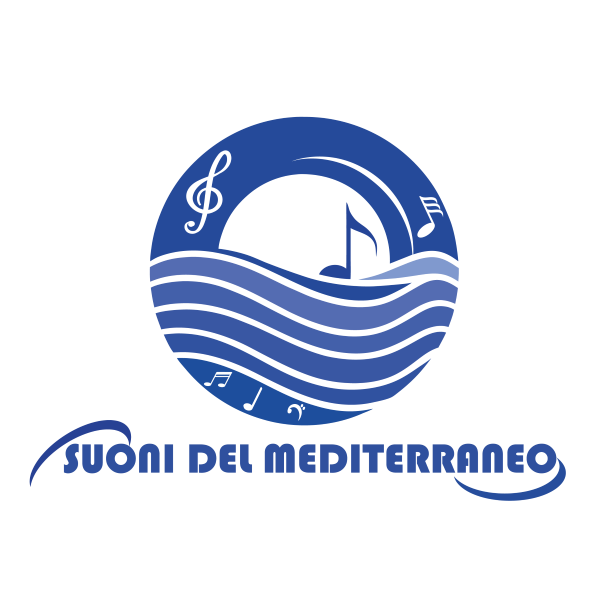The Project

L.R. 20/2003 “Partenariato per la cooperazione” – Avviso Pubblico 2024 – Linea di intervento Partenariato fra le comunità locali
 Art. 3 L.R. 20/2003 – CUP B94H24000670009
Art. 3 L.R. 20/2003 – CUP B94H24000670009
SUONI DEL MEDITERRANEO – Dialogo culturale tra Italia e Grecia attraverso la musica / SOUNDS FROM THE MEDITERRANEAN – Cultural dialogue between Italy and Greece through Music)
BREVE DESCRIZIONE DEL PROGETTO – ENGLISH VERSION
La musica del Mediterraneo è la sintesi di quanto avvenuto nel corso dei secoli sulle sue sponde. Il mare è stato un punto di unione tra i popoli che si sono affacciati sulle coste, conseguenza naturale è la fusione di lingue, costumi, suoni e colori durata millenni creando un substrato comune e sedimentato.
Vivace e produttivo è sempre stato il dialogo artistico e culturale tra Grecia e Italia, visti la dominazione bizantina, e il filo conduttore culturale che lega la Grecia e, in particolare, l’area del “Salento”. Basti pensare che nel Salento esiste un territorio, ovvero la “Grecia” (pronunciato Grecìa) in cui si parla il “Griko” e che tantissime sono le tradizioni musicali che fondono usanze e canzoni popolari del posto alle influenze greche. Una connessione che si manifesta anche nel comune sentire dei due popoli per cui la musica era espressione di civiltà, una forma d’arte necessaria, che accompagnava il teatro, la filosofia e l’educazione nel suo più ampio significato.
I legami sono, dunque, radicati nella storia e continuano ad evolversi in via generale e soprattutto in campo culturale. Abbiamo voluto mettere al centro la musica quale linguaggio universale che permette la fusione creativa tra diverse culture, velocizza i rapporti ed è volano di inclusione. La nostra esperienza ha reso evidente che progetti che valorizzano le radici comuni contribuiscono a realizzare relazioni stabili tra le comunità locali. Sulla base di quest’idea si è voluto consolidare una partnership tra Mediterranea Associazione per lo Sviluppo Locale (che da anni lavora nel settore dello sviluppo di politiche di cooperazione culturali e sociali attraverso la metodologie della mediazione artistica), il partner Greco Spartan Study society (promotore della cultura ellenica in tutte le sue sfaccettature culturali e artistiche) e il partner tecnico-musicale Junior Band Scuola Musicale Associazione Socio Culturale APS (che rappresenta l’eccellenza musicale sul territorio). Da questa partnership si intende sviluppare un sistema di cooperazione culturale che fonda elementi di innovazione sociale e tecnologica, per promuovere la partecipazione e la condivisione di idee legate al rispetto e alla promozione di valori come l’uguaglianza, le pari opportunità e la lotta ogni forma di discriminazione attraverso il linguaggio universale della musica. Il progetto, quindi, si propone di Promuovere una collaborazione strutturata tra istituzioni ed Enti pubblici e privati favorendo il dialogo tra comunità locali e all’interno delle stesse. Il progetto intende intervenire direttamente su queste problematiche, creando spazi di dialogo e collaborazione che superino tali barriere. L’obiettivo è favorire il dialogo tra comunità locali per costruire società più inclusive, coese e accessibili. Il progetto introduce nuove forme di partecipazione attraverso il web e la musica, strumenti che rendono possibile il coinvolgimento anche in territori periferici come quelli coinvolti, spesso colpiti da marginalizzazione, povertà economica ed educativa. Questi territori affrontano barriere sociali e culturali radicate, che limitano l’accesso a opportunità di partecipazione attiva e crescita comunitaria. Attraverso la musica e le tecnologie digitali, si mira a coinvolgere attivamente le comunità locali, offrendo strumenti concreti per abbattere l’isolamento e favorire l’inclusione sociale. Le attività proposte permetteranno ai partecipanti di esprimersi, sviluppare nuove competenze e sentirsi parte integrante di un processo di cambiamento positivo e partecipato.
DESCRIZIONE ATTIVITÀ
1. NETWORKING SCAMBIO CULTURALE E MUSICALE: Gli Enti partner in Italia e Grecia collaborano direttamente con le Istituzioni politiche locali e gli Enti interessati per organizzare uno scambio musicale coinvolgendo giovani musicisti locali. Si organizzano incontri con gli Amministratori gli addetti ai lavori locali per promuovere il progetto e la musica come strumento di dialogo interculturale e di inclusione sociale
2. FORUM DELLE ISTITUZIONI LOCALI SULLA COOPERAZIONE CULTURALE: Avvio di un Forum online tra le Istituzioni e gli Enti coinvolti con incontri periodici per discutere l’andamento del progetto, modalità per rafforzare i rapporti e il coinvolgimento della Comunità. Le discussioni si concentrano prevalentemente su come replicare e ampliare il modello di cooperazione sfruttando la musica come elemento di dialogo, inclusione sociale e partecipazione attiva.
3. PIATTAFORMA ONLINE: Creazione di una piattaforma online condivisa che, oltre ad ospitare il Forum documenta i risultati del progetto. Luogo di incontro delle comunità musicali dei 2 Paesi in cui condividere le proprie tradizioni musicali, discutere le azioni da intraprendere e condividere contenuti multimediali (video, interviste, registrazioni musicali). Qui è ospitato anche il Forum e il WorkShop seguente.
4. WORKSHOP DI CO-CREAZIONE MUSICALE: Creazione di uno spettacolo musicale congiunto ispirato alle tradizioni musicali italiane e greche. È, inoltre, prodotto un pezzo che mescola elementi tradizionali di entrambi i paesi per simboleggiare l’unione e l’apice del dialogo culturale raggiunto durante il progetto. Sono coinvolti musicisti emergenti con il supporto di produttori, maestri e compositori. Gli scambi tra gli Stati avvengono in via preventiva online, i giovani greci sono ospitati per 4 giorni in Italia poco prima dello spettacolo finale.
5. SPETTACOLO “SUONI DEL MEDITERRANEO”: Il progetto culmina con uno spettacolo finale che ha un forte impatto simbolico e culturale, organizzato in Italia in cui è esplorata la ricca tradizione musicale italiana e greca. Si tratta di un’occasione unica per far dialogare due Paesi del Mediterraneo attraverso un linguaggio universale, quello musicale che può essere agevolmente compreso e recepito dagli spettatori. L’evento è organizzato con il patrocinio delle Istituzioni locali che mettono a disposizione un luogo pubblico.
BRIEF DESCRIPTION OF THE PROJECT
The music of the Mediterranean is the synthesis of what has taken place over the centuries along its shores. The sea has always been a point of connection between the peoples living along the coasts, and the natural consequence has been the fusion of languages, customs, sounds, and colors—an ongoing process that has lasted for millennia, creating a shared and deeply rooted cultural substratum.
The artistic and cultural dialogue between Greece and Italy has always been vibrant and fruitful, especially considering the Byzantine influence and the cultural thread that connects Greece to the Italian region of Salento. It is no coincidence that in Salento there exists a territory known as “Grecìa,” where the Griko language is still spoken, and where many musical traditions blend local folk customs and songs with Greek influences. This connection is also evident in the shared sensibility of the two peoples, for whom music was an essential expression of civilization, a necessary art form that accompanied theatre, philosophy, and education in its broadest sense.
The ties between the two cultures are deeply rooted in history and continue to evolve, both in general terms and especially in the cultural sphere. We chose to place music at the center of this initiative, as a universal language capable of fostering creative fusion between different cultures, accelerating relationships, and acting as a powerful tool for inclusion. Our experience has clearly shown that projects which enhance shared roots contribute to building stable and lasting relationships between local communities. Based on this idea, we aimed to consolidate a partnership between: Mediterranea Associazione per lo Sviluppo Locale (an organization that has long been engaged in developing cultural and social cooperation policies through artistic mediation methodologies), the Greek Partner Spartan Study society (a promoter of Hellenic culture in all its artistic and cultural dimensions) and the technical-musical partner Junior Band Scuola Musicale Associazione Socio Culturale APS (a recognized hub of musical excellence in the region). From this partnership, we aim to develop a cultural cooperation system that incorporates elements of social and technological innovation, promoting participation and the sharing of ideas inspired by the values of equality, equal opportunities, and the fight against all forms of discrimination, using music as the universal language to convey these values.
The project therefore seeks to promote a structured collaboration between institutions and public and private entities, encouraging dialogue both among and within local communities. It addresses critical social challenges by creating spaces for dialogue and cooperation that overcome entrenched barriers. The goal is to foster dialogue between local communities, helping to build more inclusive, cohesive, and accessible societies. The project introduces new forms of participation through the web and music, tools that enable engagement even in peripheral and marginalized areas—areas often affected by economic and educational poverty. These communities face deep-rooted social and cultural barriers that limit access to opportunities for active participation and community growth. Through music and digital technologies, the project seeks to actively involve local communities, offering concrete tools to break isolation and promote social inclusion. The proposed activities will allow participants to express themselves, develop new skills, and feel like an integral part of a positive and participatory process of change.
ACTIVITY DESCRIPTION
1. NETWORKING, CULTURAL AND MUSICAL EXCHANGE: The partner organizations in Italy and Greece collaborate directly with local political institutions and relevant entities to organize a musical exchange involving young local musicians. Meetings are held with local administrators and stakeholders to promote the project and present music as a tool for intercultural dialogue and social inclusion.
2. FORUM OF LOCAL INSTITUTIONS ON CULTURAL CO‑OPERATION: An online forum is launched among the participating institutions and organisations, with regular meetings to review project progress, explore ways to strengthen relationships, and boost community engagement. Discussions focus on how to replicate and expand the co‑operation model by leveraging music as a vehicle for dialogue, social inclusion, and active participation.
3. ONLINE PLATFORM: Creation of a shared online platform which, in addition to hosting the Forum, documents the results of the project. It serves as a meeting place for the musical communities of both countries, where they can share their musical traditions, discuss future actions, and upload multimedia content (videos, interviews, musical recordings). The platform also hosts the Forum and the following Workshop.
4. MUSICAL CO-CREATION WORKSHOP: Creation of a joint musical performance inspired by Italian and Greek musical traditions. A new piece is also produced, blending traditional elements from both countries to symbolize the unity and peak of cultural dialogue achieved during the project. Emerging musicians are involved with the support of producers, maestros, and composers. Preliminary exchanges between the countries take place online, and the Greek youth are hosted in Italy for four days just before the final performance.
5. “SOUNDS FROM THE MEDITERRANEAN” PERFORMANCE: The project culminates in a final performance with strong symbolic and cultural impact, organized in Italy, where the rich musical traditions of Italy and Greece are explored. It is a unique opportunity for two Mediterranean countries to engage in dialogue through a universal language—music—that can be easily understood and appreciated by audiences. The event is held under the patronage of local institutions, which provide a public venue.